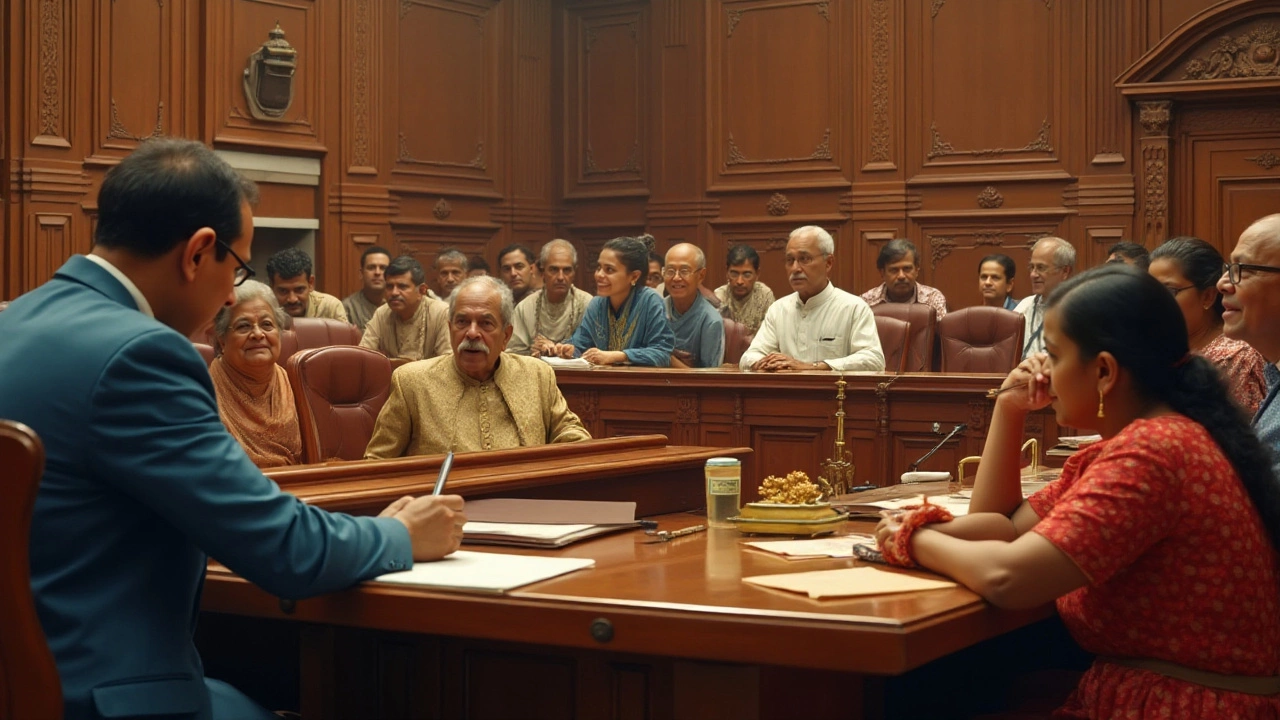January 2025 Legal Insights: Divorce, Consumer Rights & More
Welcome to the January roundup from Bharat Digital Academy of Law. This month we covered everything from how much money a husband should pay after divorce to the latest twists in consumer protection. If you’re looking for straight‑forward advice on Indian law, you’re in the right place.
Family Law Highlights
We started with a deep dive into post‑divorce finances. One article explains how courts calculate a husband’s alimony in India, taking into account income, lifestyle, and any children involved. Another piece walks you through property division, showing when joint ownership matters and how contributions affect the split.
If infidelity is on the table, we also broke down how cheating impacts alimony. The key takeaway? Fault can influence the amount, but the court still looks at the overall financial picture.
For couples who want to avoid a full divorce, we explored legal separation options. Judicial separation, informal agreements, and the pros and cons of each were laid out in plain language, so you can decide what fits your situation.
Consumer & Employment Law Updates
Consumer rights got a solid boost this month. Two posts demystified Section 54 and Section 70 of the Consumer Protection Act, explaining when you can claim product liability and how the “right to reject” works for faulty goods. Knowing these sections saves you time when filing a complaint.
On the employment front, we tackled the hot question: can an employer cut your salary in India? The answer hinges on labor laws, contract terms, and whether proper notice was given. We listed the steps you should take if you suspect an illegal pay reduction.
We also highlighted how pay cuts differ from lawful salary revisions, giving you a quick checklist to protect your earnings.
Finally, a short guide on renting clarified how long a typical lease lasts and what rights tenants have. Whether you’re a landlord or a renter, the article points out the key clauses you shouldn’t overlook.
That’s the gist of what we posted in January 2025. Each piece is written to help you understand the law without drowning in legalese. Bookmark this page to revisit any topic, and stay tuned for more practical legal updates next month.

Determining Husband's Financial Obligations After Divorce in India
Navigating the financial dynamics post-divorce in India can be complex, especially when determining how much money a husband should provide his wife. This involves understanding legal obligations, societal norms, and individual circumstances. The Indian legal system provides specific guidelines for calculating alimony, but personal factors such as the couple’s financial status, lifestyle, and other dependencies play a crucial role. Knowing these aspects can help manage expectations and prepare for future changes.

Types of Civil Court Cases the Federal Government Handles
Federal courts handle cases that involve national laws, disputes between states, and certain areas like bankruptcy or patent laws. They ensure that the United States Constitution and federal statutes are upheld through impartial judgments. Among their roles, federal courts take on complex cases related to civil rights and environmental regulations. Discover how federal jurisdiction is determined and the types of civil cases that find their way to federal courts.

Navigating Spouse's Medical Debt Responsibility in Virginia
Understanding whether you're liable for your spouse's medical debt in Virginia involves exploring local laws, marital financial responsibility, and specific circumstances such as jointly pooled resources. Marital laws can have nuances that impact how debt is attributed to each spouse. This article provides insights into legal precedents, financial implications, and practical tips for managing unexpected medical expenses. Learn how to protect your assets and manage liabilities in the event of medical emergencies within a marriage.

Understanding 'Disposed' in Civil Court Cases: A Comprehensive Guide
The term 'disposed' in the context of civil court cases is frequently encountered but often misunderstood. It signifies the conclusion of a case's processing, whether through a trial, settlement, or dismissal. Understanding what 'disposed' means can empower individuals involved in legal proceedings. This article elucidates the nuances of this term and shares helpful tips for navigating the intricacies of civil court procedures efficiently.

Strategies to Minimize Divorce Settlements in India
Navigating a divorce in India can be a daunting task, especially when it comes to settlements. This article explores various strategies that can help reduce or avoid divorce settlements. By understanding key legal principles, negotiating amicably, seeking mediation, and drafting prenuptial agreements, individuals may find pathways to protect their interests during the process. Legal guidance tailored to Indian laws is essential for effective divorce proceedings.

Path to Wealth: Becoming a Millionaire as a Corporate Lawyer in India
Becoming a millionaire as a corporate lawyer in India is an achievable dream for many legal professionals. This article explores the financial trajectory of a corporate lawyer in India, highlighting the significant earning potential, investment strategies, and lifestyle choices that can accelerate millionaire status. Explore industry insights, real-world examples, and smart financial decisions that guide lawyers toward becoming financially independent. From high-paying legal roles to smart investing, learn what it takes to become a millionaire in this competitive field.

Understanding Property Division in Indian Divorce Law
Divorce can be a challenging process, especially when it comes to dividing assets. In India, the distribution of property between spouses depends on different factors like joint or individual ownership and contributions made by each party. This article explores the intricacies of property division for couples facing divorce in India, shedding light on legal rights and potential outcomes. Understanding these aspects can help individuals prepare better for legal proceedings and manage expectations.

How Tourists Can Legally Marry in India: A 2025 Guide
Exploring the possibility of a tourist getting married in India involves understanding the legal framework, the documentation required, and the cultural nuances involved in the process. India presents a unique blend of tradition and modernity in weddings, attracting many international couples. The process has been simplified but still requires attention to detail for a seamless experience. This guide uncovers the essential steps and tips for tourists who wish to tie the knot on Indian soil.

Exploring Separation Without Divorce in India: Legal Insights and Options
Navigating the complexities of marital separation without turning to divorce in India requires an understanding of the legal distinctions and provisions under Indian law. This piece explores the nuanced alternatives to divorce, such as judicial separation and informal separation agreements, and what they entail for couples seeking space or resolution without finalizing a divorce. Unpacking personal rights, custody, financial support, and societal considerations provides clarity for those deliberating this significant life choice. It's a deep dive into how one can maintain autonomy while respecting legal frameworks and responsibilities.

Understanding Section 54 of Consumer Protection Law in India
Section 54 of the Consumer Protection Act in India serves to safeguard consumers' interests by providing a legal framework to address grievances. This section deals with product liability, where manufacturers or sellers are held accountable for defective products causing harm to consumers. Knowing these rights empowers consumers to demand quality and safety in products and services. Understanding the nuances of this law can help individuals take appropriate actions if they encounter defective goods.

Understanding Pain and Suffering in Personal Injury Claims and Punitive Damages
Pain and suffering are terms widely used in legal contexts, especially concerning personal injury claims. They refer to the physical and emotional distress one may experience after an injury. In legal claims, this type of damage is separate from punitive damages, which are meant to punish the negligent party. Understanding the difference between these types of damages is crucial for anyone involved in a personal injury case. This article will explore the nuances and legal definitions involved in compensating pain and suffering versus seeking punitive damages.

Understanding Wife's Entitlements in Indian Divorce Settlements
Navigating the complexities of divorce settlements in India can be daunting, especially when understanding a wife’s entitlements. This informative article explores the legal framework guiding divorce settlements, focusing on the rights and entitlements of a wife. Delving into factors like alimony, maintenance, child custody, and property division, it provides a clear understanding of what is commonly granted to a wife during the legal dissolution of a marriage in India. It also offers practical tips to help women seeking their rightful share.